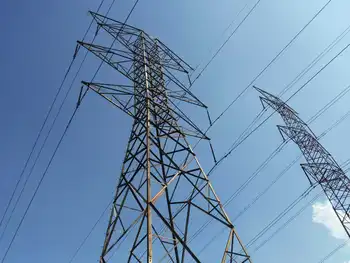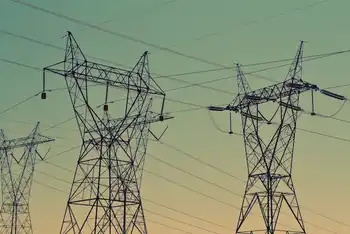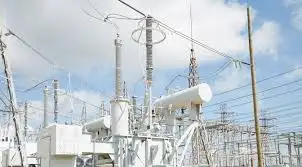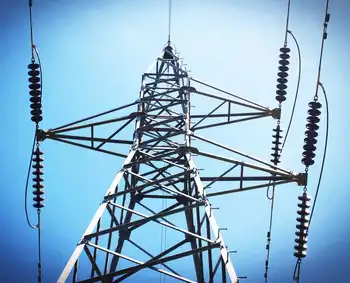Leaks costly, Exelon says: Tritium spills create credibility problem, leader says
WILL COUNTY, ILLINOIS - Dealing with radioactive tritium spills at nuclear power plants will cost Exelon Corp. a great deal of money, but the larger loss to the firm comes in the form of public trust, a top company official said recently.
"By the time it's done, it's going to be tens of millions of dollars" to pay for testing, cleanups, repairs, new infrastructure, lawyers and other expenses related to the tritium spills, said Christopher Crane, president of Exelon Nuclear. "The more damaging issue here is the credibility loss."
In a meeting with the Tribune editorial board, Crane detailed Exelon's response to the spills, particularly those at Braidwood Generating Station in southwest Will County.
Exelon last year found tritium, a byproduct of nuclear generation, in groundwater outside the Braidwood plant. It then disclosed tritium spilled from an underground pipe more than four times between 1996 and 2003.
Area residents blasted the company for not earlier disclosing the spills, which led to four lawsuits, one filed by Illinois Atty. Gen. Lisa Madigan and Will County State's Atty. James Glasgow.
Exelon launched an internal probe, discovering a new tritium leak at Dresden Generating Station in Grundy County where groundwater was contaminated from an earlier spill. It found smaller amounts of tritium had leaked at Byron Nuclear Generating Station, about 25 miles southwest of Rockford.
None of the spills, according to government oversight agencies, poses a health threat. But by all accounts, they did damage Exelon's credibility.
Crane said Exelon, which took over Commonwealth Edison's nuclear plants in late 2000, had worked hard to regain credibility after years of what was widely considered poor management by ComEd.
"We had a terrible reputation," which Exelon did much to repair, he said. "I was proud of the organization, proud of the work we got done. This has been one big slap, and we are trying to do everything as well as we can do, as open as we can do, to fix this, put it behind us, learn from it."
Part of the problem was the industry's perception of tritium, considered one of the least harmful of radioactive substances, Crane said.
"There was not, in ComEd or early on when we became Exelon, or in the industry, a large sensitivity to tritium," he said. "It's just the nature of tritium. We handle some very hazardous materials, and tritium is very low on that spectrum."
David Lochbaum, director of the Union of Concerned Scientists' Nuclear Safety Project, said the industry's attitude about tritium has changed in recent months, partly because Braidwood groundwater contamination migrated off site.
"That basically forced the industry to deal with that in a different manner because it has not done much good for their image," Lochbaum said. "It's come at a high price, a harder PR (public relations) lesson than Exelon would have wanted."
Industry watchdogs, including Lochbaum, note that tritium leaked or spilled at no less than 10 sites across the nation, four of which are in Illinois, in the last decade. The Nuclear Regulatory Commission has established a task force to probe the issue.
The industry trend is toward zero tolerance of spills, even small ones that are confined to plant grounds, Lochbaum said.
Steve Kerekes, a spokesman for the Nuclear Energy Institute, a trade group, said chief officers from nuclear facilities across the country recently met to start considering a voluntary industry policy that would include groundwater monitoring.
Exelon is sinking wells to monitor groundwater at all 10 of its nuclear stations, which comprise 17 reactors. Crane said he would be surprised if they did not find tritium leakage at another site.
In addition to groundwater monitoring, Exelon plans to install monitoring equipment on underground pipe valves, like the ones that malfunctioned and caused almost all the spills and leaks at Braidwood and Byron.
Exelon has pledged to help the small village of Godley, just west of the Braidwood plant, fund a public water system. Crane said tests thus far have found no tritium in the shallow wells used by Godley residents.
Related News

Energize America: Invest in a smarter electricity infrastructure
WASHINGTON - Much has been written, predicted, and debated in recent years about the future of the electricity system. The discussion isn’t simply about fossil fuels versus renewables, as often dominates mainstream energy discourse. Rather, the discussion is focused on something much larger and more fundamental: the very design of how and where electricity should be generated, delivered, and consumed.
Central to this discussion are arguments in support of, or in opposition to, the traditional model versus that of the decentralized or “emerging” model. But this is a false choice. The only choice that needs making is how to best…




